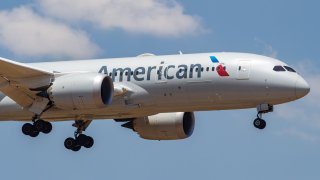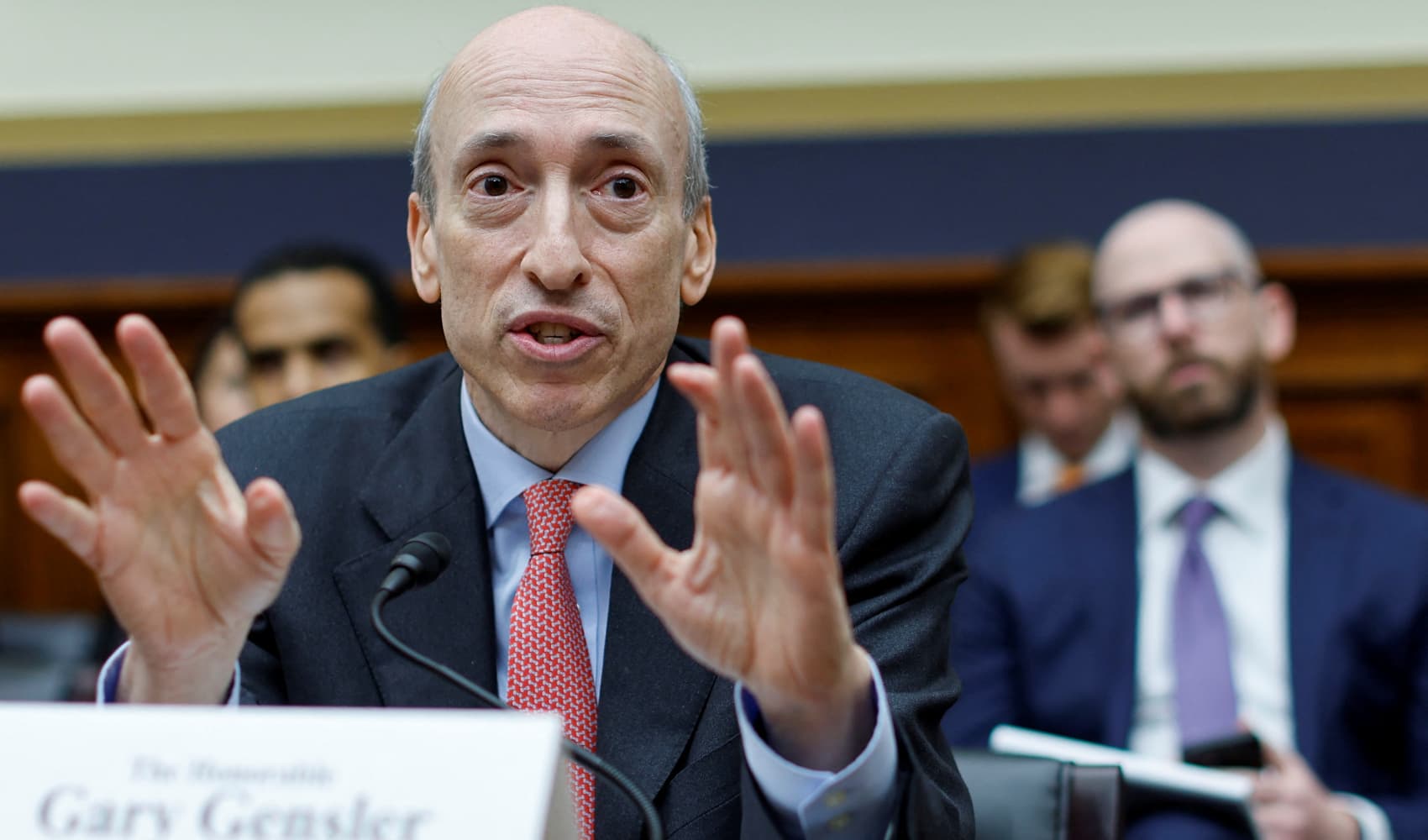
- American Airlines and Delta Air Lines have scheduled more of their larger planes to fly domestically.
- Usually these planes fly long-haul international routes but trips abroad are still uncertain because of the pandemic.
The twin-aisle Boeing 787-9 Dreamliner has a range of more than 7,500 nautical miles, enough to fly passengers on a 15-hour nonstop from Los Angeles to Sydney. This summer, American Airlines plans to use the 285-seat plane on several much shorter routes, like Chicago to Orlando.
With many trips abroad still grounded in the pandemic, American and Delta Air Lines are opting to put the some of their large jetliners to work on domestic routes or for shorter international trips.
It's one of the ways airlines are rethinking their service in the pandemic. The planes are meant to fly long range, filling up with higher-paying passengers traveling abroad. If demand for international travel comes back, as American expects this fall, the airline would wind down the practice.
Get New England news, weather forecasts and entertainment stories to your inbox. Sign up for NECN newsletters.
"It's like buying a Porsche to drive it to church on Sundays," said Brian Znotins, American's vice president of network planning.
Znotins said there is usually at least some domestic service using widebody jets on high-demand routes or to position aircraft in cities for long-haul flights but the carrier is ramping up domestic service with them.
Domestic leisure travel has largely recovered from a year ago, airline executives say, but international bookings and service are still depressed because of quarantine requirements, closed attractions and outright entry bans such as the one on most non-citizens from much of Europe entering the U.S. and vice versa.
Money Report
Fort Worth-based American this summer plans to fly some Boeing 777s, its largest plane, from its Miami hub to both Los Angeles and New York's John F. Kennedy International Airport. It will use 787s between on some flights between Philadelphia and Orlando, and to Las Vegas from Philadelphia, Chicago and Miami.
Delta is using Boeing 767s it would usually use for long-haul international flights on routes from Atlanta to Denver, Las Vegas, San Diego and its hub at Minneapolis-St. Paul. These planes and its Airbus A330 will serve Hawaii from Seattle, Salt Lake City and Minneapolis-St. Paul, but also shorter flights like the Twin Cities to Phoenix.
The idea is to "fill up the biggest boat you can find with very low cost seats and hope that the fares come in," said Robert Mann, an industry analyst and former airline executive.
American is optimistic.
"Over Easter and spring break, widebodies that we were operating did well on those days but then if you got a random Tuesday in the middle of April, you're not really going to run very full anywhere in the system let alone on a widebody," said Znotins. "But as we move into Memorial Day and the summer, just like a typical year, all days of the week start to fill up and that's where we start to see the higher load factors."
American's schedule so far shows it will operate a combined 3,104 flights using twin-aisle planes on domestic routes in July and August, up from 563 a year ago and 2,846 during the same months of 2019, according to data from Ascend by Cirium, an aviation consulting firm.
The airline has been among the most aggressive of the large carriers in capitalizing on the rebound in domestic leisure travel, the bright spot in the travel as coronavirus cases have declined from their peak and vaccination rates rise, and attractions like Disneyland reopen. American said Tuesday it expects to restore capacity to more than 90% of its domestic 2019 schedule this summer.
"American's current strategy seems to be to fly as much as they can and worry about yields later," said Brett Snyder, a former airline manager who runs an air travel assistance company, Cranky Concierge, and writes the Cranky Flier blog.
Single-aisle planes like those in the Boeing 737 and Airbus A320 families still account for the vast majority of flying in the U.S., including that of American. Its departures using single-aisle mainline jets will rise to a combined 189,862 in July and August up from 92,391 last year and 155,084 in summer 2019, Cirium data show. At American, Delta and United Airlines, these types of planes account for more than 70% of the scheduled domestic capacity this July and August, similar to before the pandemic.
United normally flies more domestic trips using wide-body planes than other U.S. carriers but this year that flying has been hampered by the effective grounding of its Boeing 777 fleet with Pratt and Whitney 4000 engines pending inspections after a failure shortly after a Hawaii-bound flight took off from Denver in February.






